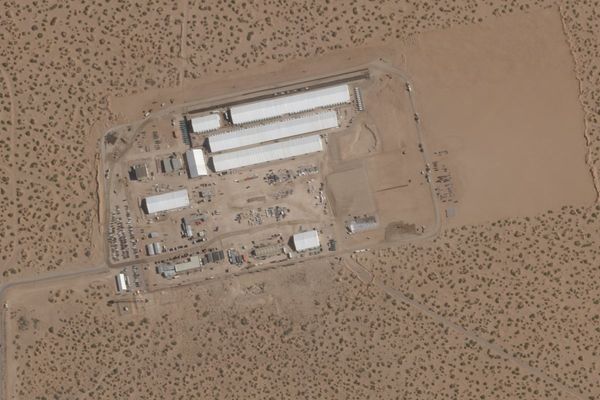The coroner has instructed Corrections to review its mental health services, after the suicide of serial killer Hayden Poulter at Whanganui prison in 2018.
In findings released on Thursday, Coroner CJ Thompson found that Hayden Tyrone Poulter, also known as John Leon Lorenzo, died by suicide in his cell at Whanganui Prison.
The exact details of the method of death are suppressed.
Poulter was sentenced to life in prison in 1997 after he bludgeoned to death a woman who worked as a prostitute on Auckland's Karangahape Rd.
A week later, the former demolition worker killed a massage parlour worker, her boss,
and tried to kill another worker.
Part-way through his sentence, in 2013 Poulter was transferred to Whanganui Prison, where he remained until becoming eligible for parole in 2016.
After two unsuccessful applications in 2016 and 2017, Poulter was granted parole and released into the community to live at an address alongside his mother and sister in June 2018.
The conditions of that parole included living at the specific address, electronic monitoring and prohibition from consuming drugs or alcohol.
But a matter of months later, it was established that Poulter's compliance with the parole conditions was unsatisfactory, with his parole officer receiving information suggesting Poulter had begun consuming cannabis and methamphetamine.
Poulter also had suggested faking his own death so he would no longer have to comply with his parole conditions.
On August 27 in 2018, the probation officer lodged an application with the parole board that Poulter be recalled to prison on the grounds he posed an undue risk to public safety.
He was remanded in custody the same day.
/cloudfront-ap-southeast-2.images.arcpublishing.com/nzme/ASRC6XCA6RTE2M2TRYN7FU6HEY.jpg)
Two days after his return to prison, Poulter was assessed by a corrections officer who concluded he was at low risk of self-harm.
However, due to his history of self-harm, including a suicide attempt in 1997 while awaiting trial, a referral to the prison's mental health service was nevertheless made.
That referral sat with the Corrections officer until September 2, when the officer alerted a colleague that she couldn't access the system to file the document.
A colleague then attempted to submit the referral, but a week later, the system notified the officer the document wasn't correctly submitted.
The document was not fully submitted until September 10 - 13 days after the initial assessment.
In the meantime, Poulter was seen by a prison liaison nurse from Whanganui DHB's mental health service.
Poulter expressed his desire to speak to someone about how he was feeling.
According to the findings, Poulter then requested an appointment with a doctor on September 21. An appointment was subsequently scheduled.
The next morning at around 8am, Poulter was discovered dead in his cell.
Further investigation was needed - coroner
In a letter found next to his body addressed to the Principal Corrections Officer, Poulter wrote that he was sorry "for the trouble I have caused, but I cannot do this anymore. After years of prison, the thought of more years in here is something I cannot deal with."
Poulter also wrote a letter to his mother, saying "I am really depressed Mum, and no one in here cares."
According to Coroner Thompson, it is not possible to say whether or not, had counselling been made available earlier, Poulter's death could have been prevented.
But had counselling been made available to Poulter earlier, "it may have provided an opportunity to have at least discerned the extent and acuity of Mr Poulter's distress".
Coroner Thompson noted that the processes to ensure the referral was actioned were inadequate, not functioning, or poorly understood by staff.
It was recommended that the Department of Corrections review the systems and processes surrounding mental health referrals, and that Corrections staff be provided with appropriate training in recognising the risk of self-harm and suicide in prisoners.
Where to get help:
• Lifeline: 0800 543 354 (available 24/7)
• Suicide Crisis Helpline: 0508 828 865 (0508 TAUTOKO) (available 24/7)
• Youth services: (06) 3555 906
• Youthline: 0800 376 633
• Kidsline: 0800 543 754 (available 24/7)
• Whatsup: 0800 942 8787 (1pm to 11pm)
• Depression helpline: 0800 111 757 (available 24/7)
• Rainbow Youth: (09) 376 4155
• CASPER Suicide Prevention
If it is an emergency and you feel like you or someone else is at risk, call 111.







